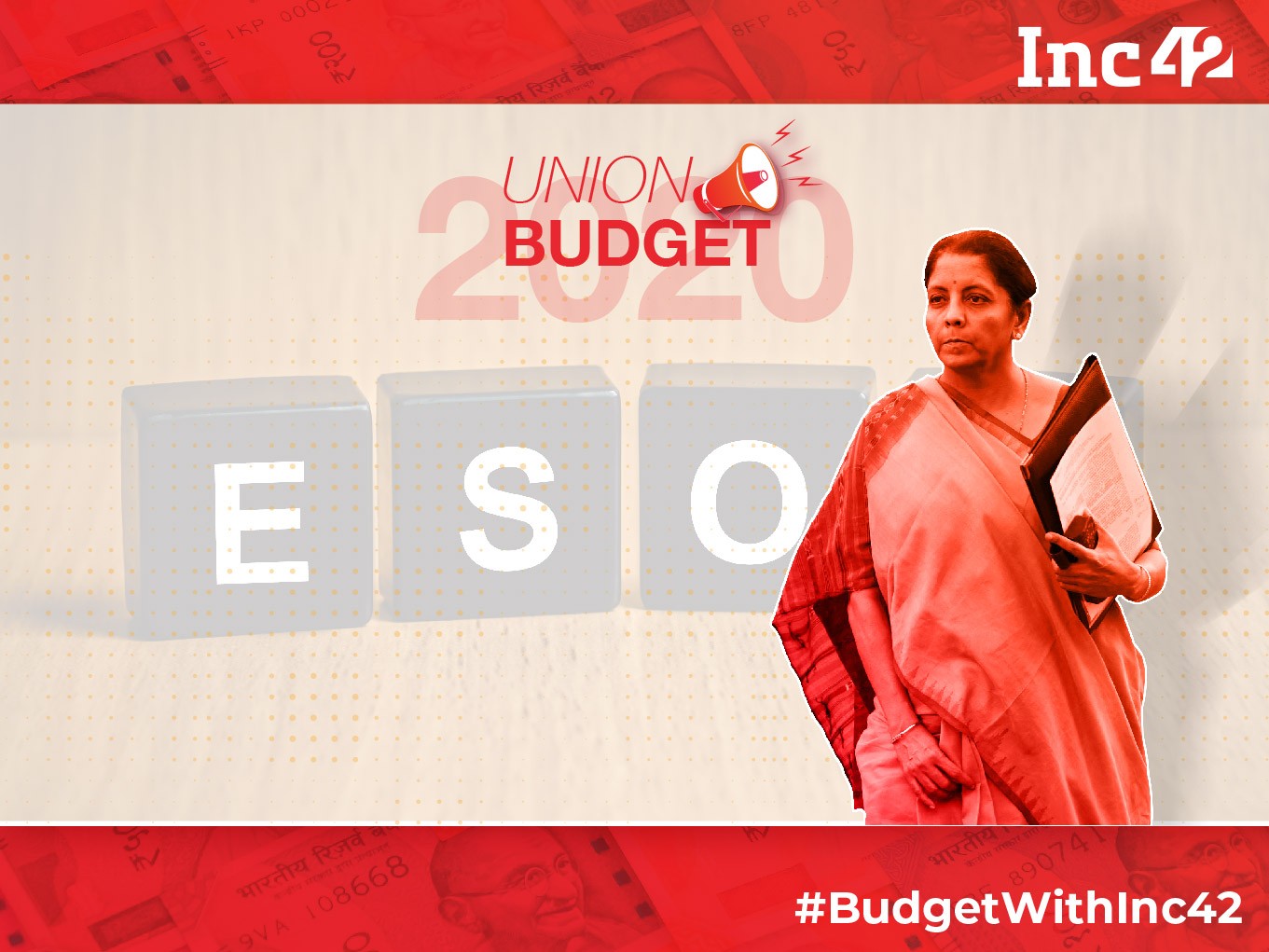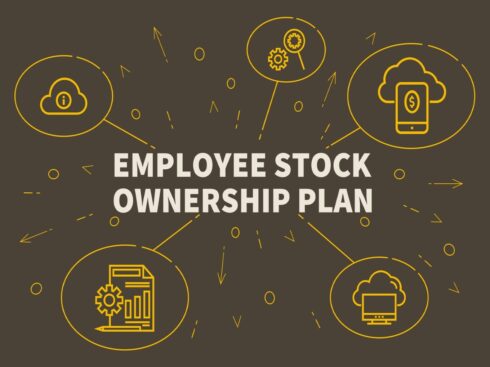SUMMARY
The government has not addressed the double taxation on ESOPs in startups
There needs to be more clarity for employers on the timing of TDS deduction
Tax on ESOPs at the time of exercise must be removed, demand stakeholders
Union Budget 2020
Every year, we bring the rundown of the Union Budget from the lens of the startup ecosystem through a mix of pre and post budget coverage showcasing the expectations and impact on the ecosystem.
What were the biggest takeaways from the Budget 2020? Changes in income tax slabs?
It was perhaps the most obvious expectation to address the low consumer expending. However, the announcement related to changes in the income tax slab sadly doesn’t intend to do so as:
- It’s too complicated and given the two regimes, people might choose the older slabs
- 70 tax exemptions will be removed for new slabs, and
- Many believe the new regime might be rolled back like surplus charges on high net-worth individuals, last year.
Beyond that, what was the biggest takeaway for the startup ecosystem?
The popular vote goes to the employee stock option plan (ESOP) tax breather, but here the question is — has the government really addressed the issue?
The answer is no, if you ask the stakeholders. Here’s the current ESOP tax situation, the changes that the Union Budget 2020 brought in and the demands of the startup ecosystem.
What Is ESOP And How It Affects Startups?
For startups hiring great talent at a premium salary has always been a great challenge. Here’s where ESOPs come in to help startups acquire the right kind of talent, even if they cannot afford the high salaries that corporates pay. This is because startups can offer employees a piece of the company or ESOPs over a certain period of time called the vesting period. After the vesting period, the employees are allowed to exercise their ESOPs.
Usually, the stock price offered to the employees under ESOP (exercise price) is less than the fair market value (FMV) of the stock.
Currently, while the Finance Bill 2020 is yet to be enacted, ESOPs are taxed twice under section 17(2) of the Income Tax Act.
- At the point of exercise: ESOPs are treated as perquisites. Employees have to pay tax over the price difference between fair market value and exercise price
- At the point of sale: Employees have to pay taxes on the capital gain, based on the difference between the selling price and FMV
The tax rates on the capital gains are based on whether it is short term or long term. For startups i.e. in the case of unlisted shares, if the ESOPs are held for less or equal to 24 months, it is treated as short-term capital gains and will be taxable as per the slab rates of taxpayers. If an employee holds ESOPs for more than 24 months, tax is levied at 20% of the capital gains.
Interestingly, in the case of listed shares, capital gain tax is either nil or a maximum of 10%
ESOPs: What Were The Demands Of Startups, Investors?
Investors, startup founders have been demanding to stop the double taxation on ESOPs. Stakeholders in their conversations with Inc42 said that the government must do away with tax payments on the point of exercise. As employees have to pay the exercise price for the shares and these are not direct incentives, which is what ESOPs are seen as. Paying tax on the exercise price which is 30% and later 20% at the point of sale makes it almost impossible for startups and employees to use ESOPs meaningfully.
“Taxing ESOPs at the point of sale will help make ESOPs attractive again and help create employee wealth while ensuring taxes are paid when the employee makes money, not on notional values,” said Siddarth Pai, managing partner of 3One4 Capital.
Rehan Yar Khan, managing director, Orios Venture Partners had earlier elucidated on the need to do away with issuance tax and clubbing it into redemption. There is no loss to the government on this.
Pai added, “ESOPs are the democratisation of shareholding of a company and is amongst the single largest drivers of employee wealth anywhere in the world. As such, the Indian situation of employees requiring to take loans in order to pay the taxes on the exercise of their ESOPs is a black mark against the Indian startup story.”
What’s Proposed In The Budget 2020 & The Finance Bill?
In her Budget 2020 speech, finance minister Nirmala Sitharaman agreed to the fact that startups generally use ESOPs to attract and retain highly talented employees and this is a significant component of compensation for these employees. Currently, ESOPs are taxable as perquisites at the time of exercise. This leads to cashflow problems for employees who do not sell the shares immediately and continue to hold the same for the long-term.
Sitharaman, therefore, announced,
In order to give a boost to the startup ecosystem, I propose to ease the burden of taxation on the employees by deferring the tax payment by five years or till they leave the company or when they sell their shares, whichever is earliest.
In the Finance Bill 2020, proposing an amendment to Section 191 of the Income-Tax Act, the draft Bill says —
“For the purposes of paying income-tax directly by the assessee under sub-section (1), if the income of the assessee in any assessment year, beginning on or after the 1st day of April 2021, includes income of the nature specified in clause (vi) of sub-section (2) of section 17 and such specified security or sweat equity shares 28 referred to in the said clause are allotted or transferred directly or indirectly by the current employer, being an eligible start-up referred to in section 80-IAC, the income-tax on such income shall be payable by the assessee within fourteen days:
- after the expiry of forty-eight months from the end of the relevant assessment year; or
- from the date of the sale of such specified security or sweat equity share by the assessee; or
- from the date of the assessee ceasing to be the employee of the employer who allotted or transferred him such specified security or sweat equity share, whichever is the earliest.”.
Govt Fails To Address ESOPs Issue: Stakeholders
While investors and stakeholders have welcomed the move as they feel it has recognised the issue at large. Deferring tax payments by a maximum of 5 years simply brings temporary relief. Double taxation is still applicable, said most of the stakeholders.
Nakul Saxena, director-iSPIRT Foundation, said that change in ESOP taxation, wherein the actual payment of tax has been deferred to earlier of the three conditions — five years from exercise of option, at the time of departing the company or at the time of sale of those shares — is a step in the right direction “iSPIRT has been outspoken on the need for ESOP taxation to be revised as per global norms, lest they become ineffective as a tool of employee compensation or retention solely due to the tax regime,” Saxena said.
On the move, Rajat Tandon, President, Indian Private Equity & Venture Capital Association, IVCA said that IVCA had recommended complete removal of tax at the time of issue, saying that ESOPs must only be taxed at the time of sale and not at the time of vesting. This step is a positive one and IVCA looks forward to more favourable steps to enable the growth of alternative investment funds that provide long-term capital for the India growth story.
Pai asserted that the solution is a half-way measure between the status quo and what the industry wanted, i.e, taxation at the point of sale. The Finance Bill 2020 states that the tax liability will be determined at the point of exercise of the ESOPs, taxed as the difference between the fair market value of the shares and the exercise price.
Sanjay Swamy, managing partner of venture fund Prime Venture Partners, said that the specific change towards taxing ESOP taxation when gains are realised is significant, but it would’ve been ideal without caveats of the five-year limit or when the employee leaves the company.
Similarly, Vinod Murali, managing partner of Alteria Capital Advisors, also mentioned that while the Budget 2020 could have been better from this point of view, at least the deferral by five years is a step in the right direction. “From that perspective, it’s good that the government is listening to what’s happening in the startup ecosystem. They have their own constraints. And, I think they will do more to benefit founders and investors in future.”
Archit Gupta, cofounder and CEO of ClearTax, demanded more clarity on the issue in the weeks to come — and this is expected as the post-Budget notifications come to clarify doubts in the industry. Speaking to Inc42, Gupta said, “There is another aspect which needs to be considered, is the employee going to wait until the TDS deduction takes place? The employer will have to make sure that the exercise of ESOPs is included and only the TDS deduction gets delayed. This might create some sort of a gap and the government should bring in some more clarity on the issue.”



























